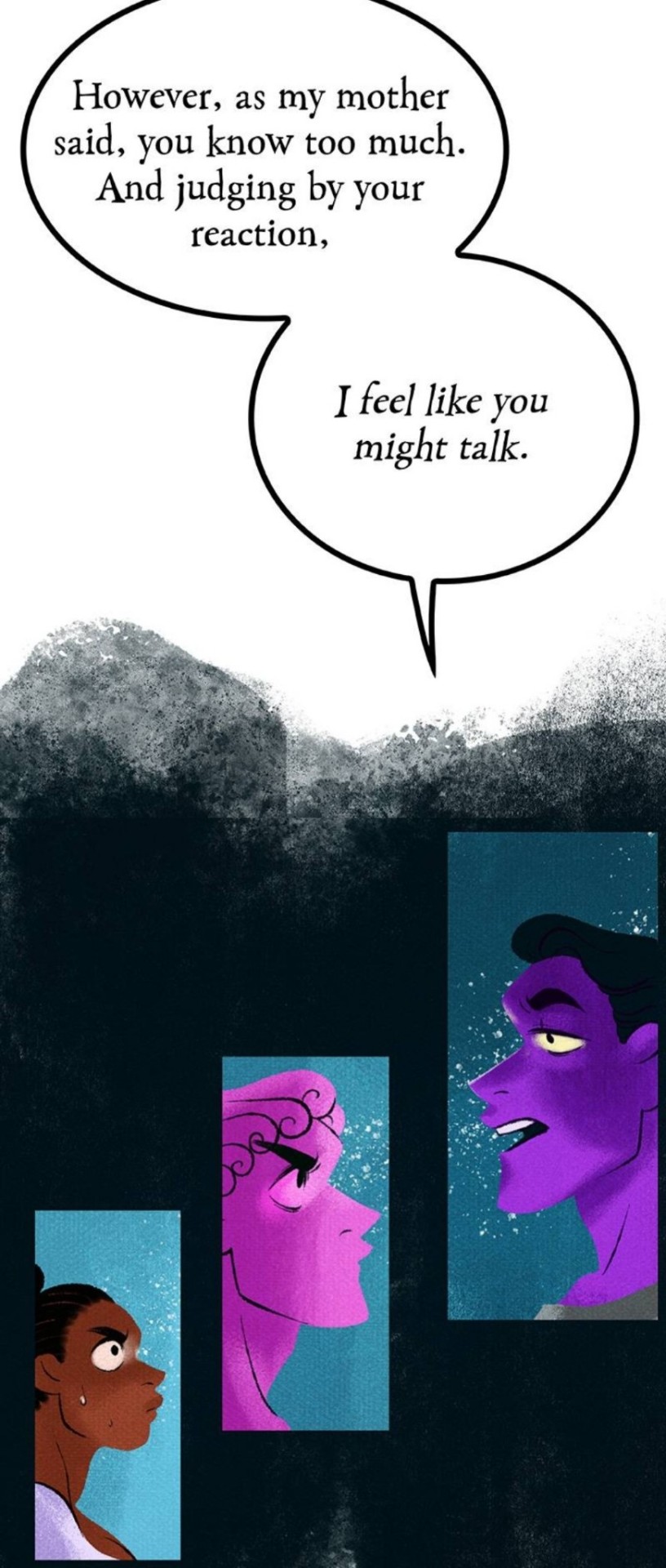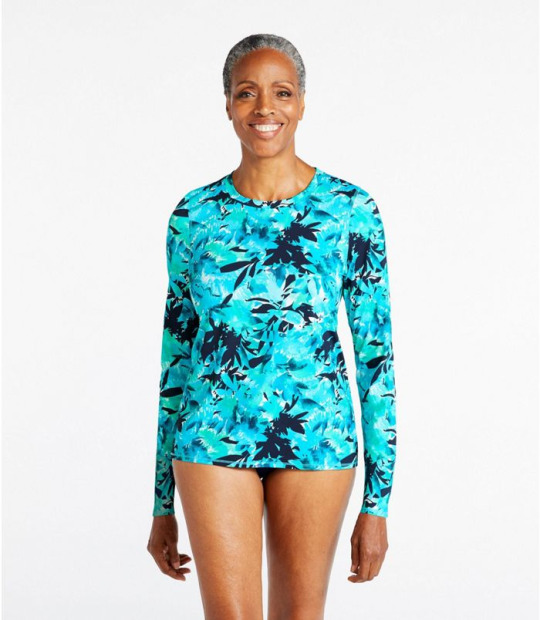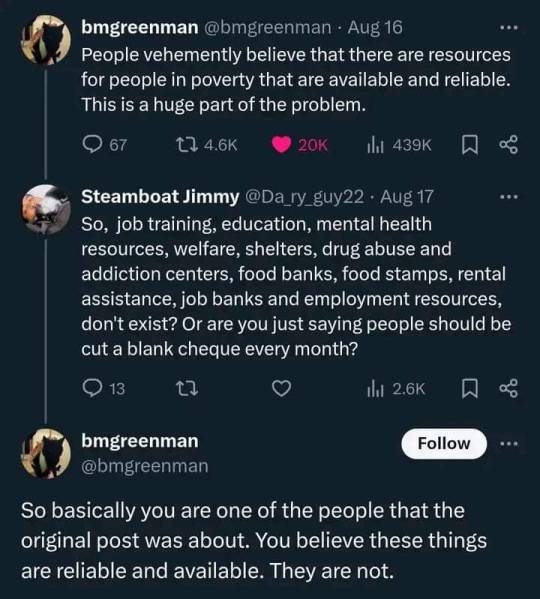#Myth About Term Insurance
Explore tagged Tumblr posts
Text
Why Term Insurance is NOT a Scam? Explained in 1 minute
Many people rant on social media about their insurance companies denying to settle claims. Some even don’t hesitate to claim that the concept of insurance itself is a scam and is meant to rob innocent people in the name of providing protection.
But is that true? Of course not.
If you look at the claims data or claims settlement ratio of various insurance companies, you will see a different picture.
Insurance is a fast growing and well regulated industry in India. Insurance companies are supposed to settle all genuine claims as and when they arise. And if any insurance company denies to settle a claim, there is a grievance redressal mechanism which the consumer can resort to.
And no insurance company would want to spoil its brand or image by getting into unnecessary problems.
Does that mean that these people who rant about their insurance companies or provide negative reviews are lying? Most likely, no.
People who do not face any issues or are happy with the products they purchased are less likely to leave a review than people who are not happy. These unhappy customers go all out to put up negative reviews to release their anger or frustration.
What goes wrong here is that many people buy insurance products which do not suit their needs. They are not aware of the terms and conditions governing their policy. They do not bother to go through the fine print and find out what their insurance policy actually covers.
Insurance is a legal contract which can have many terms and conditions. And all these terms and conditions governing your policy are mentioned in your policy document.
Read the policy document carefully once you receive it. If you do not like any clause or if you are not happy with any condition, you can always return your policy within the free look period and get your money back.
Topics covered in this video 👇 Myth about Term Insurance Term Insurance is NOT a scam Mistakes while buying term insurance Claim settlement Rejection in Term Insurance
#Term Insurance Is Scam#Term Insurance Is Not A Scam#Why Term Insurance is NOT a Scam#Why Term Insurance is a Scam#Myth about Term Insurance#Mistakes while buying term insurance#Why Claims are not settled in Term Insurance#Why claims are rejected in Term Insurance#best term insurance#best term life insurance#how to choose term insurance plan#what is term insurance
0 notes
Text
Term Insurance Myths Debunked: Making an Informed Purchase
When it comes to securing your family's financial future, term insurance is often hailed as a practical and cost-effective solution. However, misconceptions and myths about term insurance can cloud your judgment and deter you from making an informed purchase. In this article, we will debunk common term insurance myths and shed light on the benefits you get when you buy Term Insurance.
Myth 1: Term Insurance is Costly
One of the most prevalent myths about term insurance is that it is expensive. In reality, term insurance is one of the most affordable types of life insurance. Unlike other policies, term insurance provides pure life coverage without any investment component, making it a cost-effective way to secure your family's financial future.
Myth 2: I Don't Need Term Insurance Because I'm Young and Healthy
You might think that since you're young and healthy, you don't need term insurance. However, life is uncertain and unexpected events can happen at any age. Term insurance is a safety net that ensures your family's financial security even if the unexpected occurs.
Myth 3: Term Insurance Lapses if I Don't Die During the Term
Some people fear that if they outlive the policy term, their term insurance would be a waste of money. However, this isn't true. While term insurance is designed to provide a death benefit, some policies offer a return of premium option. With this feature, if you survive the policy term, you receive the premiums you paid, making it a win-win situation.
Benefit of Term Insurance
Now that we've debunked these myths, let's explore the benefits of term insurance:
1. Affordability: Term insurance offers significant coverage at an affordable premium, ensuring that you can protect your family's financial future without straining your budget.
2. Customization: You have the flexibility to choose the coverage amount and policy term that align with your financial goals and responsibilities.
3. Comprehensive Coverage: Term insurance provides pure life coverage, offering a substantial death benefit to your beneficiaries in the event of your untimely demise.
4. Additional Riders: Another benefit of Term Insurance is that many term insurance plans offer riders that provide coverage for critical illnesses, accidental death and disability, enhancing the overall utility of your policy.
5. Peace of Mind: Knowing that your loved ones will be financially secure even in your absence brings peace of mind and helps you sleep better at night. Term insurance is a valuable financial tool that dispels the myths associated with it. It offers affordable, customizable and comprehensive coverage, ensuring that your family's financial future remains secure. When considering term insurance, it's essential to choose a trusted provider like PNB MetLife. So, don't let myths deter you; make an informed purchase decision and safeguard your family's well-being with term insurance.
#Term Insurance Myth#Myth About Term Insurance#Term Insurance Benefit#Term Insurance Advantages#Temr Insurance Online#Buy Term Insurance
0 notes
Text
On Appalachian and Southern Stereotypes
After seeing some people leap at the opportunity to insult and further harm us under my posts, even by obviously leftist accounts, I wanted to address some of the most popular stereotypes of our region.
Not as an excuse. There are many negative, violent and otherwise harmful features of the American South. We have a horrific history especially in terms of the violence we inflicted and continue to inflict upon the Black community that cannot be forgotten, and, as a culture, we do need to pay our dues.
But maybe this will help y’all apply some nuance to the situation and understand that we aren’t all your enemy.
Stereotype 1: Everyone is a Republican Racist
Absolute horse shit, my friends. There are people like me all over the south and in the hollers. We just get drowned out by the fascists, and it is all by design.
In my home state of North Carolina alone, they are working tirelessly to make it impossible for young, often liberal (if not outright leftist) voices to be heard. They specifically target regions with heavy POC populations.
As recently as May of this year, the North Carolina Supreme Court overturned their own previous ruling which once made gerrymandering illegal. This allows Republicans free range to draw their congressional lines wherever benefits them most.
Meanwhile, Roy Cooper, our Democratic governor, has been in office since 2017.
Gerrymandering is a real problem, and it reflects the worst of us. But it does not reflect all of us.
We are a working class, pro-union people.
We are coal miners and mill workers and farmers.
We took up arms against the government and fought for our labor rights during the Coal Wars as recently as the 1920s.
We bled for labor rights at the Battle of Blair Mountain.
It’s a myth that you keep perpetuating that we are all closed minded, bigoted regressionists. It diminishes the efforts of everyone from the coal miners to people like me while we try to make the region a better place.
It actually only worsens what you say that you wish you could “saw off into the ocean.”
That's my home you're talking about.
Stereotype 2: Everyone is Obese
36.3% of the overall population of the Southeast is obese. This is true.
Have you considered why that may be? For starters, Southerners are more likely to be uninsured compared to individuals living in the rest of the country.
"Among the total nonelderly population, 15% of individuals in the South are uninsured compared to 10% of individuals in the rest of the country."
Partially because they didn't even expand the same Medicaid benefits to us. and partially because we are just so fucking poor.
17% of the American South is below the poverty line, compared to 13% in the Midwest, 13% in the West, and 13% in the Northeast.
Percentages under 5% may not seem like much, but when you consider 1% of the total United States population is around 3,140,000 people, yeah, that adds up real quick.
How does this relate? Well...
Mississippi has 19.58% of its residents below the poverty line, and a 39.1% obesity rate.
West Virginia has 17.10% of its residents below the poverty line, and a 40.6 % obesity rate.
Kentucky has 16.61% of its residents below the poverty line, and a 40.4% obesity rate.
Are you seeing the trend?
We, generally speaking, are more likely to be unable to afford to feed ourselves wholesome foods, and we are less likely to be able to afford medical insurance--two things that are obviously important to maintaing good health and a "healthy" weight.
By the same token...
Stereotype #3: We're All Uneducated
The South and Appalachia are some of the lowest ranked in terms of educational funding and spending per pupil in the entire country. We don't even break the top 30 on the list, y'all.
49. Tennessee at $8,324 per pupil 47. Mississippi at $8,919 per pupil 45. Alabama at $9,636 per pupil 42. Kentucky at $10,010 per pupil 36. North Carolina at $10,613 per pupil 35. South Carolina at $10,719 per pupil 33. Georgia at $10,893 per pupil 32. West Virginia at $10,984 per pupil
The top three best-funded states, by comparison, receive between $18k and $20k per pupil.
In terms of higher education, student loans are a death sentence for everyone but especially impoverished kids just looking for a way out. It just isn't feasible for most of us. And that's if we even tested well after going to shitty schools our whole lives. If we had better education, we'd have better literacy in all things, including critical thinking, allowing us to better see through the bullshit we are taught. But we don't. And you aren't helping the ones who are trying in spite of that.
Stereotype 4: Bad Teeth
Quickly going to touch on this one--when we consider a lack of access to affordable, healthy food, shitty medical insurance in general and our poverty rate, this one is kind of obvious. Even so:
“Dental coverage was significantly lower than the national average in the South Atlantic (45.6%), East South Central (45.6%), West South Central (45.9%), and Pacific (48.0%) regions.”
Every time you make a toothless hillbilly joke, ask if poverty is really the butt of the joke you want to be making.
These are just the most pervasive of them, imo. And they can all be underlined by extreme poverty which is absolutely by design.
It also contributes to why it isn’t so easy to “just leave” as we are so often dismissively told to do. Moving is expensive.
And why should we have to, anyway? Why should we have to flee our homes?
Why, for those who feel safe enough and/or have no other choice, should we not stay and fight to better the region?
And why can’t you other leftists get behind us and help us in our fight instead of perpetuating harmful stereotypes? We're your people, too.
Just some food for thought. And I hope some of y’all take a big ol bite.
#i am already exhausted#if you wanna discuss or for some reason argue any of these points my asks are open but i'm hopping off of here for now#appalachia#appalachian culture#appalachian mountains#southern usa#txt
537 notes
·
View notes
Text
Alanna Vagianos at HuffPost:
Many Republicans want you to believe that women are getting abortions in the eighth and ninth months of pregnancy simply because they can. The right-wing rhetoric has been used to criticize abortion rights supporters and Democrats for years. Even Donald Trump — who up until recently consistently dodged the topic of abortion — has started repeating the myth.
Democrats “support abortion up to and even beyond the ninth month,” the GOP presidential nominee said last month. Democrats can “have [an abortion] in the seventh, eighth, ninth month, and they can kill the baby,” he said in another interview, adding that in some states “they can kill the baby after the baby is born.” Sen. Ted Cruz (R-Texas) said this week that “there are late-term abortions and every single Democrat supported it.” (“Late-term abortion” is a popular right-wing talking point, but HuffPost is not using it because it’s medically inaccurate.) The belief that pregnant people use abortion like birth control is a well-worn boogeyman that the anti-choice movement has peddled for decades. Though rife with misinformation, the political strategy has been extremely successful, creating cultural stigma so deep around abortions later in pregnancy that many Democrats, including President Joe Biden, and even some pro-choice advocates, are uncomfortable discussing it.
But people do get abortions later in pregnancy — a phrase that generally reflects abortions at or after 21 weeks. Some are women with wanted pregnancies who get a fatal fetal diagnosis. Others are young people who don’t realize they’re pregnant or don’t have a safe way to get an abortion right away. Still, others experience something catastrophic and life-changing later in pregnancy — a partner becoming violent, their home burning down, a job loss — that will make it nearly impossible to safely raise a child. There’s also an increasing number of people pushed further into pregnancy because they experience barriers to care early on: their home state banned abortion forcing them to travel, or their immigration status makes it dangerous for them to seek health care, or they need to save up for the procedure because it’s not covered by insurance.
No one is getting an abortion in the second or third trimester because they woke up one day, months into being pregnant, and decided they didn’t want to be pregnant anymore. But the politically manufactured shame around later abortion care runs so deep that many Democrats believe it too, in part because of the power of these lies. Biden has centered his reelection campaign around restoring Roe v. Wade, and advocates are building policy around it too, protecting abortion care until viability or around 24 weeks — effectively ignoring those who will need care later in pregnancy.
“One of the mistakes we’ve made as a movement is to not talk about later care,” said Dr. Diane Horvath, an OB-GYN and abortion provider at Partners In Abortion Care, an abortion clinic in Maryland where 90% of her patients receive care in the second and third trimesters. “I think we thought we were protecting ourselves by being quiet about it,” she said. “But when you leave gaps in the narrative … anti-abortion folks have always been very happy to fill them in with things that are scary and incorrect, and really debase people who have abortions and debase people who provide them.” Most abortions do happen in the first trimester: Almost��93% of abortions reported to the Centers for Disease Control and Prevention in 2020 were done before the 13th week. Nearly 99% took place by the end of the 20th week. Somewhere around 1% of abortions occur at 21 weeks or later, and the subset of abortions in the third trimester (around 26 weeks) is even smaller.
[...]
Even under the best of circumstances, with a lot of privilege and resources, getting an abortion in the third trimester when Roe was still intact was extremely difficult. “The whole time we’re asking ourselves, ‘What would we have done if any of these pieces were not in place? What if we couldn’t have accessed that money quickly? What if we didn’t have IDs that allowed us to get on a plane? What if we didn’t read and speak English?’” recalled Christensen, who along with her husband founded the abortion strategy and advocacy group Patient Forward.
In 2020, 9% of people who accessed abortions had to travel out of their home state to receive care, according to The Guttmacher Institute. Three years later, after the Dobbs decision that repealed Roe, that number has doubled with around 20% of patients seeking care across state lines. (That number does not account for the increase in medication abortion by mail, a common access point for pregnant people in the first trimester post-Roe.) Horvath and Morgan Nuzzo, a certified nurse midwife, opened Partners in Abortion Care shortly after the Supreme Court repealed Roe v. Wade in the summer of 2022. The two met working at a Planned Parenthood clinic, but didn’t become close until Nuzzo was pregnant with her first child, and Horvath offered some hand-me-down baby clothes from her kids. Partners in Abortion Care in College Park, Maryland, is one of a small handful in the country that offer all-trimester abortion care. During the first year the clinic was opened, they saw patients from 40 different states and three countries.
Their clinic sees about 10 to 15 patients a week ― nearly all of whom are getting abortions after 20 weeks. The clinic caps the number of patients they see weekly because later care takes more time. Unlike early care, which can often be done using abortion pills, abortions in the second and third trimester are more complex. An abortion between 20 and 26 weeks is typically a two-day procedure, and past 26 weeks is a three-day procedure.
HuffPost explores the stigma of those who get an abortion post-fetal viability and how anti-abortion propaganda (such as falsely calling post-fetal viability abortions "late term abortions") plays a role in creating such stigmas.
Those who choose abortion in the later half of the 2nd or the 3rd trimester do so because of extenuating circumstances.
Post-fetal viability = anywhere after 21-25 weeks in gestational age.
#Abortion#Reproductive Health#Anti Abortion Extremism#Abortion Stigma#Fetal Viability#Post Fetal Viability Abortion
25 notes
·
View notes
Note
trying to work out some thoughts on anorexia/restrictive eating disorders as inherently “mental illnesses” so forgive me for doing that in your inbox lol. but as someone who starved myself for a while as a teenager in order to fit into the ideal of thinness i reallyyyy hate when people call anorexia/bulimia a mental illness. what i was doing was very reasonable — i was trying to get thin, fast, so people would think of me as pretty/desirable, and starving myself was a way to do that. i feel like terming restrictive eating disorders as mental illnesses in & of themselves makes them seem like, unreasonable? or like you’re biologically predisposed to starve yrself? i guess i just want to know if you have any thoughts on the terming of “anorexia” or “bulimia” as mental illnesses (sorry for the vagueness of this question)
i have thoughts lol
in general i don't actually get a lot of mileage out of the concept of 'mental illness', tbh. there are lots of different things going on here—sometimes these labels are used to pathologise behaviours and experiences that are simply normal variations in human populations (& are often experienced as impairments due to the context of a social and economic environment designed to exclude them). sometimes they're just pathologising certain portions of the population, and are a tool for how marginalisation occurs, like 'drapetomania' or 'hysteria' or indeed the racialised nature of 'schizophrenia' diagnoses. sometimes what we call 'mental illness' is what i would argue is a very reasonable response to fucked up circumstances, like what you're talking about or indeed the inherently stressful and traumatising experience of, like, surviving capitalism. you also have to keep in mind that the way the pharmaceutical industry and the psychiatric establishment work in tandem means that some diagnostic labels come into existence after a drug is discovered/manufactured, and needs an insurance billing code in order to start making money.
on top of all this, as a philosophical point, 'illness' or 'disease' in medicine has some specific meanings (contested & varied over time/place, obviously) and i'm not actually convinced that affective distress is best explained or ameliorated by this framework. the argument that affective distress is a disease state has mostly been very useful for people who are invested in claiming medico-scientific authority and prestige for clinical and academic psychiatry. interestingly ofc, they have never fully succeeded in doing this because there are no biomarkers for psychiatric diagnoses, that's not how these diagnoses are made, and it's certainly not how they're treated (despite outright lies like the 'chemical imbalance' myth still being pushed on many patients).
when it comes to 'eating disorders' specifically, one thing to keep in mind up front is that although all eating disorders are restrictive in origin, both the responses to and causes of that restriction vary widely. the 'classic' story here since about the mid-20th century has been a (white, upper-class) girl who wants to be thin and starves herself in pursuit of beauty / social acceptance; depending on how she responds to this attempted restriction, you might see further restriction, binge-type behaviour, binge-purge behaviour, &c. but this is really only one eating disorder 'story'. as i've said before, food / energy restriction can start for a million different reasons, including lack of access to sufficient food, sensory aversions, other illnesses, over-exercise, &c. and people's mental and physical responses also vary a lot. i've probably never met a disordered eater who had NO thoughts on thinness as the beauty standard and beauty as currency—because of the social context we live in, these ideas will usually at some point become wrapped up in the food restriction, and are often major drivers of the sort of guilt response that tends to perpetuate eg a binge-restrict cycle. but this isn't to say that the desire for thinness is every disordered eater's sole or even primary psychological experience.
since my own experience has always been very similar to yours, though, i can speak to that a little. i agree with you fully in how i narrativise my own self-starvation, lmao. i don't think it's ever been some kind of biological predisposition with me, or a weird or aberrant or even pathological response to my circumstances. i actually think, given the social and familial context i grew up in, starving myself is one of the more logical and normal things i've ever engaged in. it's socially rewarded (both the resultant weight loss and the hypervigilant food / body behaviours in themselves) and emotionally numbing in a way that makes literally everything else 1 billion times easier to manage.
again, there's complexity here when talking about 'eating disorders' more broadly; people receive many different messages about food and body size, and respond to them differently as well. (this is a tricky thing with any diagnosis that's given on the basis of behaviours / symptoms—ie all psychiatric diagnoses—the label is ontologically incapable of differentiating between different causes for, and experiences of, what may be externally the same behaviours.) and it's also true that eating disorders involve a biological element in the sense that restrictive food intake (or the threat of restrictive food intake, like guilting yourself for eating something you perceive as unhealthy / fattening / &c) triggers a whole complicated physical response because, yknow, humans need to eat lol. but my point stands, i think: the psychiatric discourse of 'eating disorders' is still very wilfully decontextualising them, because otherwise it would have to become a broader social justice conversation about things like poverty and weight stigma. that's not something that psychiatry is disciplinarily equipped to do!
74 notes
·
View notes
Text
Lore Olympus this week is whole lot of OOOOHHHH FFFFFUUUUUCCCCCKKKK!!!!!

No sooner has Apollo taken over than he starts cleaning out the dissenters, starting with Eros and Psyche. You know, like a real-world dictator!
Medical gods so corrupt? Why does the American Healthcare system come to mind? Oh yeah.... insurance.
Thank you, Eros, for pointing out the blatant repeat of history.
Oh, and just in case E&P won't be silenced...



...Apollo's got his Mom as his backup with his bullshit.
What pisses me off more is that Leto actually believes her son's bullshit. Like, I get that Zeus & Hera both shafted her when she was pregnant with Apollo and Artemis, but I'd like to believe that SOMETHING had to come off as odd to her about her son. However, given that I don't think she knows Apollo SA'd Persephone, there might be a lot more that Leto doesn't know (and should) about her son's deeds.

And Apollo doesn't stop at just Eros & Psyche. He signed the note as Hebe intentionally to get her out of the way without having to jail her. Ugh!

While Apollo is cleaning out the palace, Persephone is having a serious crisis --- Everything is turning to winter.
From some of her thoughts, snow and winter were a legend of the past, but that it hasn't happened in who knows how long. I wonder if autumn was just an extra long season until Persephone ate the pomegranate.
Needless to say, Demeter is furious that her daughter's very purpose is just flat-out gone. Naturally, she blames Hades, and for once, she's probably not wrong.
[IN B4 YES, PERSEPHONE ATE THE POMEGRANATE OF HER OWN FREE WILL.]
Could we blame Apollo's machinations for this? Possibly. It could be something related to the prophesy, but I don't think this is the case. In terms of Rachel's method of storytelling, there could be a deeper connection to the prophesy of Apollo's takeover.
I think Persephone causing winter instead of spring here was more a part of what she gave up when she ate the pomegranate. If my theory of there being an extra-long autumn is the case, then the pomegranate deal meant that winter happened instead. Persephone had to spend a whole half of the year in the Underworld instead of just 3/4 of it. That would likely put things more in line with not only the real world, but with the original myth as well.

I was going to put this bit in my own words, but Rachel just came right out and said it, so I don't have to.
I know that I and other LO fans have made guesses and speculations that turned out to be incorrect before. It happens. I know I've guessed wrong before. I think in this instance, Rachel didn't want an incorrect assumption to be made right out of the gate and nipped it in the bud immediately.
Anyway, thanks for coming to my LO post!
#lore olympus#lo apollo#lo eros#lo psyche#lo leto#lo persephone#lo hades#lo demeter#LO HOSTILE TAKEOVER
33 notes
·
View notes
Text
Debunking Common Myths About Third-Party Employment in Noida

In the dynamic panorama of Noida’s employment sector, third-celebration employment has emerged as a tremendous participant, but it stays shrouded in myths and misconceptions. Let’s resolve the reality behind some of these commonplace fallacies.
Myth 1: Third Party Employment is Unreliable
Contrary to popular belief, third party employment in Noida isn't always synonymous with instability. Many respectable staffing businesses carefully vet candidates, ensuring that the most effective qualified professionals are matched with suitable positions. Moreover, those corporations regularly offer contractual agreements with installed companies, supplying a degree of job protection similar to traditional employment.
Myth 2: Third Party Employment Lacks Benefits
Another false impression is that 0.33-birthday celebration personnel are with out benefits loved with the aid of permanent staff. However, many staffing agencies provide complete benefit packages, together with medical insurance, retirement plans, and paid break day. By leveraging their partnerships with various organizations, these companies make bigger valuable perks to their brief workforce.
Myth 3: Third Party Employment is Short-Term
While some 0.33-party roles can be temporary or task-primarily based, there are ample opportunities for lengthy-term engagements. Skilled specialists regularly locate themselves transitioning from transient assignments to permanent positions inside patron businesses. Third-celebration employment serves as a strategic access factor into Noida’s thriving job marketplace, providing avenues for profession increase and advancement.
All in All, debunking these myths sheds light on the viability and blessings of third party employment in Noida. By embracing this flexible employment version, each employer and job seekers can capitalize on numerous opportunities and foster a collectively profitable professional panorama.
2 notes
·
View notes
Text
Resign or Be Fired: Which is Better?
If your employer intends to fire you, they may offer you the choice to voluntarily resign instead. There are some benefits to this, namely that it will never be on your "permanent record" that you were fired.
But if the company is firing you (esp with cause), how does it benefit them to let you resign? Simple! In most circumstances, they won't have to pay you unemployment.
Unemployment is a complicated system, but basically employers pay Unemployment Insurance to the state and possibly the feds. If someone is laid off, fired, etc. and eligible to collect unemployment, they then go to the state to get it. A number of factors go into deciding how much an employer pays, and one of those factors is how many employees filed for unemployment the previous year. So the more employees file, the more an employer has to pay. (I used to work for my state UI.)
If you voluntarily resign, you likely won't be eligible for unemployment.
Whether that matters or not really depends on your individual circumstance. If you work in a very high demand field, you'll be able to find a new job pretty quickly, especially with a positive reference from an employer. You will come out ahead financially by getting a positive reference, rather than filing for unemployment. Some employers will also offer some perks for doing this, like a small severence agreement.
It can be tricky if you are in a highly competitive field. It may take you longer to find a job, meaning you would likely need the unemployment income. However, if the field is competitive, it may hurt your prospects for a potential employer to learn that you were fired. You need to weigh the pros and cons.
If you're in a low demand, less competitive field, it is almost always necessary to get unemployment. It would depend on why you're being fired. If you're being fired with cause, you may be ineligible, depending on the eligibility criteria of your state. But also, if the employer is giving you the option to resign, then the cause might not be enough to render you ineligible. You need to know the specifics of your circumstances.
In certain fields, it can definitely be a huge mark against you. In HR, being fired with cause can completely derail your career. You're supposed to know better. For teachers, it can also be an issue because there is such a shortage that it causes suspicion.
Contrary to popular internet myth, it is not illegal for a former employer to tell a prospective employer THAT you were fired.
In some states, it is illegal to tell another employer WHY you were fired. That's a big difference. It also only applies in some states. It isn't HR best practice (I personally would only do it in very specific circumstances) so most HR workers will only answer "term type" (resigned, fired, laid off, etc) and "eligible for rehire". If it is company policy to not rehire a former employee (which it sometimes is) an ethical HR person will disclose that.
Finally, remember that being fired isn't necessarily the career ender we all think it is. When I recruited, I would only exclude a fired applicant if their firing had something to do with a license violation. I was staffing medical, so it could potentially endanger a patient. That was all I really cared about.
Give all factors due consideration and let me know if you need any advice.
#hr#human resources#workers rights#law#workers unite#fired#quit#know your rights#career#career advice
22 notes
·
View notes
Text
So, appearantly I can't be screened for Autism because I'm an adult, and only kids can recieve a diagnosis. At least that's what my psychiatrist told me
Like, why? Autism isn't a Childhood Disability, it's lifelong. So, am I supposed to go without the accommodations I need because no one cared enough to get me tested as a kid
Actually, I'm curious about that. I had an IEP from Elementry onward, for "Emotional Disturbance," but not once did anyone ask me what was wrong. People who knew me when I was young are either ableist ("you don't look autistic," from my Bio mom), or say I should've been tested, because it's obvious (one sister in my ward asked my grandmother, and she said I was, but my Bio mom says I never was, and I think she would've known, because that's when she was still around). So, that begs the question, why did none of my teachers say anything. I've had bad teachers (my Sped Teacher in Middle School straight up told us that "students didn't deserve rights," and that she'd send us to the principal for not saying the Pledge of Allegiance), but I had legit awesome teachers who cared for me so much, and did everything to help me (even going beyond what the IEP said & just asking me what I needed). Were they just powerless, or did they assume I was diagnosed, or did they just never notice
Actually, that's one of the reason I loved the Church. I'm weird about it now (I can explain later, but let's simmer it down to Sensory & Social Issues). Sure, no one said "hey, maybe you should get tested" (except the RS President who's son would later adopt me, and my Best Friend's Mom), but I was noticed & accepted (which is all I really wanted). My friends were almost all Neurodivergent, and I just had a place where I belonged. Ironically, everyone says the Church pushes you into a box, but it helped me come to terms with myself. I am Autistic, I am Bisexual, I enjoy myths, have tarot cards & runestones, I am untraditional in basically every way, but the Church gave me the courage to say "I'm following my own path," taught me how to listen to the Spirit which says "I will guide you safely & comfort you when people don't understand," the ability to see myself as a God in Embryo & realize I am valid, as an Autistic Bisexual Mormon Witch who has questioned my Gender Identity on a number of occasions (it's weird, but I don't really feel any gender (what's gender even feel like anyway). I use he/him because it's easier, as I am a Bio male, but I don't care, and think I look slay in either genders clothes (although, I do prefer Androgynous Style, but T-Shirt & Jeans works as well))
I'm actually reminded of Elementry School. I did awesome in classes, straight As until 4rd grade. But my 4th Grade Teacher noticed something odd. When I was away from the board, I would play with my eyes. I was Nearsighted, and for 4 years, no one noticed (for a number of reasons, including because I did the eye thing, asked questions, read the book, and always sat at the front of class). Now, that teacher was Awesome (she even inspired me to get my first pet, a Guinea Pig named "Fluffy"), and she saw a problem no one else did. I am going into education, and I wanna be that teacher. I want to be the teacher who not only cares, but notices things other people don't. I want to do everything in my power to make sure no one goes without what they need: be it new glasses, a diagnosis, or just a few minutes alone with an apple (because school's hard, and sometimes you just need quiet time & a snack)
TL;DR- I can't get screened on my insurance, someone should've noticed when I was a kid, my 4th Grade Teacher & Mormonism both rock & helped me realize my validity (so has my awesome wife, but I didn't mention her in there, even though I met her at church, and she's most likely also ND), and I wanna be better when I'm a teacher so no one goes without
#autism#autism diagnosis#school#teacher#iep#undiagnosed autism#autistic student#lds#mormon#autistic mormon#ramblings#stream of consciousness#random
3 notes
·
View notes
Text
Going to expand a bit on the "or else."
I was at a group thing the other day and heard someone older (sixties-seventies, not sure of her exact age) asking another woman where she'd gone for vacation because she had such a nice "healthy tan."
I cringed just hearing that phrase -- an advertising myth from a bygone era, which survived longer than its contemporaries such as "cigarettes are good for you" and "children should eat more lard." I'd just finished sorting some publications for a sale, and I read an article in one of them that forcefully reiterated how there was no such thing as a "healthy" tan, all tanning is a sign of irreversible skin damage, and we should all be wearing sunscreen daily to stave off deadly skin cancers -- the diagnosis of which was climbing at record rates compared to other types of cancer.
This article was published in 1990.
We've known since well before the invention of the World Wide Web that unprotected sun exposure can actually kill you, and yet people are still going out without sunscreen -- or even deliberately tanning because "I just want to look good for the wedding," or "I'll get a little tan first so I don't burn," or whatever reason.
Everyone's skin can be damaged by the sun, regardless of skin color or pigmentation. The results of cumulative sun damage aren't just freckles or dryness or leathery texture -- it can be basal cell carcinoma, or melanoma, or squamous cell carcinoma, or even merkel cell carcinoma, which is the deadliest form and often metastasizes to other organs, such as the brain or lungs. (Even when treated successfully, it has a ~40% chance of recurring within 3 years.)
If it sounds like I'm trying to scare you... well, I am. I've had numerous family members and acquaintances diagnosed with skin cancer. Sunscreen (or equivalent gear; see below) is cheap insurance, and it could literally save your life.
Choosing a sunscreen
Not all sunscreens are created equal. Mineral sunscreens (those made with zinc oxide or titanium dioxide) are generally better choices; they're more shelf-stable than chemical sunscreens, and offer full-spectrum protection. They're also better for the planet -- most chemical sunscreens are actually toxic to marine life and coral reefs, and should never be used at the beach or around waterways. (Some sunscreens advertise "reef-safe" or "reef-friendly," but those terms are unregulated, so anyone can use them regardless of ingredients. Here's a guide to choosing a true reef-safe product.)
Chemical sunscreens that contain active ingredients such as homosalate, avobenzone and oxybenzone offer full-spectrum protection when new, but only remain at peak effectiveness for a few months in storage (and break down more quickly in high-temperature environments, such as a hot car). Chemical sunscreens should not be stored from year to year. If you have chemical sunscreen left over from a previous year, it's probably expired and will not provide full protection.
Both kinds of sunscreens come in a variety of forms, including sprays, creams, liquids, and solid sticks that you can apply as needed. Choose the type that works best for your own skin and convenience.
For daily use, it's a good idea to wear a sunscreen with SPF rating of at least 15. A lot of daily facial moisturizers contain a light sunscreen, so you can just put that on in the morning to protect yourself from casual sun exposure. If you're going to be outside for any length of time (mowing the lawn, watching a sporting event, going for a walk, shoveling snow), go with SPF 30 or higher. (I wear SPF 50+ any time I'm planning to be outdoors, because I'm pale and at high risk.) Be sure to reapply as directed.
Free/cheap sunscreen samples
If you're worried about the cost of adding sunscreen to your daily regimen (and yes, some varieties can be pricey), here are some places you can get free or lower-cost samples to get you started. (These are USA only, since that's where I'm based, but you can Google "free sunscreen sample" to check what's available in your region.)
LaRoche-Posay Anthelios Melt-In Milk SPF 60 free sample request form, no purchase necessary!
Suntegrity has lower-cost ($2-$7) samples of their tinted SPF 30 sunscreen products
PinchMe offers rotating free product samples such as this sunscreen that you can claim at no charge
DailyGoodieBox also has products on rotation, but they sometimes offer skin care boxes that include sunscreen
Sephora stores offer free take-home samples of nearly every product they sell, including a lot of sunscreen moisturizers; visit a local store if you have one. If you place an online order, you can also add up to three free product samples to your order (online sample products rotate, but there's usually at least one sunscreen product). They also periodically offer sunscreen sample packs that you can purchase at a reduced price to try new products.
Ulta Beauty has a free membership program that sends you a free gift and/or product samples on your birthday; they often have sunscreen available
LOTS of sunscreen companies offer free sunscreen wipes or sample packs at large events such as state fairs, concert festivals, sporting events, etc., so keep an eye out if you go to a big outdoor event!
"...But I HATE the texture/smell/whatever of sunscreen!"
If you don't like the idea of slathering your body in sunscreen, there are other sun protection options available. One of my go-tos is UPF-rated clothing. Whenever I know I'm going to be out in direct sun all day, I wear a long-sleeved, zip-up UPF 50 swim shirt that provides the same or better sun protection as wearing SPF 50 sunscreen. Because it's a thin, lightweight material designed for swimming, it's not hot -- I even wore it in the Sahara desert.

(It's a selfie, so you can't see much of the shirt, but I wore this thing all over Egypt, Jordan, Türkiye and Greece. I also wear it for, y'know, actual swimming.)
UPF shirts come in many styles, with and without zippers, pockets, or hoods:



UPF clothing is sold at sporting and outdoors stores (such as REI), as well as on Amazon and other retail sites. Depending on style and features, they run between $20-$60 -- or about the cost of two to four tubes of sunscreen. I paid about $25 for mine several years ago, and I've DEFINITELY gotten my money's worth out of it.
While it's still best to wear sunscreen on any exposed skin (including ears and lips!) when outdoors, you can also reduce direct sun on your face by wearing a broad-brimmed hat. Try to choose one that's solid material, rather than a straw hat with open weaving or holes that allow sunlight through.
In conclusion...
None of us enjoys thinking and stressing about all the ways our environment is trying to kill us, but using sun protection is a simple habit to get into, and it's an easy way to stay safe while still enjoying outdoor activities.
In short: Wear sunscreen.
be pro-aging but wear sun screen. sun protection is not beauty industry propaganda it will save you. wear it. or else.
#sunscreen#this post length got a bit out of control but it's important so I'm not shortening it#life advice#free stuff
191K notes
·
View notes
Text
4 Common Mortgage Myths, Debunked
Myth 1: You Need a 20% Down Payment
One of the most persistent mortgage myths is that a 20% down payment is a requirement. While putting down 20% can help you avoid private mortgage insurance (PMI), it's far from a universal rule. Today, many loan programs cater to buyers with smaller down payments. The key is finding the loan that fits your financial situation. Saving for a large down payment is great, but don't let this myth discourage you from starting your home-buying journey sooner.
Myth 2: You Need Perfect Credit
While it's true that your credit score affects your mortgage terms, perfection isn't necessary. Lenders understand that life happens, and many programs are designed to accommodate a range of credit profiles. What matters most is your ability to show consistent financial responsibility. Don't let past mistakes hold you back. Many lenders are willing to work with borrowers to find solutions that make homeownership possible.
Myth 3: Pre-Qualification and Pre-Approval Are the Same
These two terms might sound similar, but they serve very different purposes in the mortgage process. Pre-qualification is an initial estimate of what you might be able to borrow based on self-reported financial information. It's a useful starting point but isn't a guarantee.
Pre-approval, on the other hand, involves a more thorough evaluation of your finances, including income, credit, and assets. It results in a formal document from your lender stating how much they're willing to loan you. Pre-approval carries more weight when making an offer on a home, as it shows sellers you're serious and financially prepared. If you're planning to start house hunting, pre-approval is the way to go. It provides clarity and a competitive edge in the market.
Myth 4: You Should Always Choose the Lowest Interest Rate
A low interest rate is certainly appealing, but it's not the only factor to consider when choosing a mortgage. Loans with the lowest rates may come with higher upfront fees, stricter terms, or shorter repayment periods.
For example, adjustable-rate mortgages (ARMs) often start with lower rates than fixed-rate mortgages but can increase over time. If you plan to stay in your home long-term, a slightly higher fixed rate might save you money and provide peace of mind. It's essential to look at the full picture, including closing costs, loan terms, and overall affordability. For more advice on your loan options, click here.
Making Informed Decisions
When it comes to mortgages, myths can cause unnecessary worry or lead to missed opportunities. The next time you hear one of these myths, remember: homeownership is as much about preparation as it is about perspective.
0 notes
Text
Common Myths About Impact Windows Debunked!
Introduction
When it comes to dwelling safe practices and vitality performance, affect home windows stand out as an predominant function for many house owners, especially in typhoon-susceptible areas. However, notwithstanding their increasing status, many different myths surround these long lasting installations. In this article, we’ll take a better inspect the Common Myths About Impact Windows Debunked!, proposing you with transparent insights and evidence to help you make proficient judgements. Let’s dive into the area of impression home windows and explore their merits, function, and the truths in the back of the myths.
youtube
What Are Impact Windows? Understanding the Basics of Impact Windows
Impact home windows are chiefly designed to resist excessive climate stipulations, including robust winds and flying particles. These home windows include varied layers of glass bonded mutually with an interlayer that holds all the pieces in place even upon influence. This makes them a general resolution for buildings observed in regions incessantly tormented by hurricanes or severe storms.

https://claytonhuqm816.weebly.com/blog/cost-vs-value-are-impact-windows-worth-the-investment How Do Impact Windows Work?
The development of affect windows involves complicated science that reinforces their toughness. When an item moves the window, the inner layer prevents shattering, making sure that your own home continues to be blanketed from exterior supplies. This unique design now not merely safeguards in opposition t wind and rain however also delivers additional defense opposed to break-ins.

Common Myths About Impact Windows Debunked! Myth 1: Impact Windows Are Only Useful in Hurricane-Prone Areas
Fact: While they're principally useful in typhoon zones, impression windows shall be nice wherever. They provide superior security against holiday-ins and boost vigor effectivity by way of cutting back heating and cooling quotes.
Myth 2: Impact Windows Are Too Expensive
Fact: The initial investment in impact home windows should be would becould very well be bigger than natural techniques, but they be offering long-term discount rates by diminished insurance premiums and scale back vigour debts. Additionally, many householders find peace of brain understanding they’re more nontoxic during storms.
Myth 3: All Impact Windows Are Created Equal
Fact: Not all impact windows are the similar; there is a broad fluctuate of preferences obtainable that you can purchase. Different brands supply varying degrees of preservation, insulation houses, and trend offerings. Consulting with a good effect window installer allow you to judge the handiest product in your wants.
youtube
youtube
Myth 4: Installing Impact Windows Is Complicated
Fact: While install calls for capabilities to determine suitable sealing and structural integrity, official effect window installers make the approach truthful. They cope with every thing from measuring to securing enables obligatory for deploy.

Myth 5: Impact Windows Make Homes Look Unattractive
Fact: Many home owners fear that influence windows will detract from their dwelling house's aesthetic charm. However, present d
0 notes
Link
#debtmanagement#debtmanagementcompanies#debtmanagementcompany#debtmanagementplan#debtmanagementplancompanies#debtmanagementplancreditscore#debtmanagementplanonline#debtmanagementplans#debtmanagementprogram#debtmanagementprogramme#debtmanagementprograms#debtmanagmentcompany#moneymanagementskills#moneymanagementtips#program#whatisadebtmanagementplan#whatisadebtmanagementprogram
0 notes
Text
Education and job training both cost money and require you to provide your own supplies even for something simple like a GED.
Any kind of welfare has a very narrow window of people who can apply to it and waitlists are years long. Undocumented people can't apply, and you won't be accepted without copies of your social security card, ID, and birth certificate, which are super easy to lose if you don't have a place to stay.
It is very easy to get robbed or assaulted at shelters, and what are you supposed to do if there aren't any beds available or if you get kicked out for missing curfew? It is also nearly impossible to stay sober in shelters and many shelters have pests or even cost money to stay.
"Drug abuse and addiction centers" cost money or at least require insurance. Government insurance will also lapse if you don't recertify every year, and if you're living under a bridge without consistent internet you're not going to have the ability to fill out the paperwork to keep your insurance. It can be very hard to get into a treatment center if you're undocumented.
Food banks frequently run out of food and arent open 24/7. Most I've been to are open maybe 3-4 hours a day one or two days a week. If you work during that time, you're out of luck. This also requires transportation to get to and from food banks.
Food stamps are only available to people under a certain income level, so if you get a job your food stamps will get cut off. You can't buy fast food with ebt and you can't make a lot of meals without a kitchen. If your card gets lost or stolen, you're out of luck for about a month until a new one can ship.
Rental assistance waitlists are YEARS long and frequently will only cover part of your rent or pay rent for a few months of your lease. These are also not avaliable to a lot of felons and people without documentation. You also can't usually sign yourself up for rental assistance - you have to be working with a very specific kind of case worker who can get you on the years-long housing waitlist, and getting on THAT person's caseload can also take a year or more.
I've never heard the term "job bank" before, but employment centers have waitlists. Jobs require a permanent address to apply and generally don't like it if you can't shower or wear clean clothes to work. How are you consistently going to get to a job without transportation? Or if there's a physical, mental health, or substance use issue that you can't treat because you don't have money or insurance?
People who talk like this are completely clueless and have never actually interacted with these resources that they claim exist. "Pulling yourself up by your bootstraps" is a myth to justify cutting off support to people who are relying on it to survive

#more and more people are needing these programs and so theyre constantly getting harder to access#but they are VITAL to KEEPING PEOPLE ALIVE#these kinds of programs arent suppose to “fix” things long term#WE are supposed to be addressing systemic problems while these programs keep people alive#systemic fixes can include rent caps or mor affordable housing. ubi and universal healthcare#except we ARENT doing those#so people arent able to “become independent” and stop needing these resources
55K notes
·
View notes
Text
Common Myths About Impact Windows Debunked!
Introduction
When it comes to house security and power efficiency, impact home windows stand out as an principal characteristic for plenty of homeowners, chiefly in hurricane-prone parts. However, despite their expanding status, severa myths encompass those long lasting installations. In this newsletter, we’ll take a closer study the Common Myths About Impact Windows Debunked!, presenting you with clear insights and records to help you make educated selections. Let’s dive into the sector of effect home windows and explore their merits, functionality, and the truths at the back of the myths.
What Are Impact Windows? Understanding the Basics of Impact Windows
Impact home windows are mainly designed to face up to serious climate circumstances, including powerful winds and flying debris. These home windows include more than one layers of glass bonded in combination with an interlayer that holds every little thing in vicinity even upon influence. This makes them a popular collection for buildings positioned in regions characteristically plagued by hurricanes or serious storms.
How Do Impact Windows Work?
The structure of effect home windows comes to advanced expertise that complements their toughness. When an item strikes the window, the inner layer prevents shattering, ensuring that your home stays safe from exterior supplies. This interesting layout not in simple terms safeguards in opposition to wind and rain however additionally promises added security opposed to smash-ins.
Common Myths About Impact Windows Debunked! Myth 1: Impact Windows Are Only Useful in Hurricane-Prone Areas
Fact: While they may be https://zanerfan512.over.blog/2024/12/making-the-switch-transitioning-from-standard-to-impact-windows.html tremendously necessary in storm zones, impact windows will be useful everywhere. They present better safeguard towards break-ins and escalate vitality efficiency by reducing heating and cooling rates.
youtube
Myth 2: Impact Windows Are Too Expensive
Fact: The preliminary investment in impression home windows is also greater than standard options, however they present lengthy-term discounts due to reduced insurance plan charges and cut vitality expenditures. Additionally, many house owners to find peace of thoughts understanding they’re greater cozy for the duration of storms.
Myth three: All Impact Windows Are Created Equal
Fact: Not all effect home windows are the identical; there may be a extensive stove of strategies a possibility available on the market. Different brands provide various levels of security, insulation properties, and fashion offerings. Consulting with a good effect window installer will help favor the most appropriate product in your needs.
Myth 4: Installing Impact Windows Is Complicated
Fact: While installing calls for technology to ensure correct sealing and structural integrity, professional impression window installers make the system honest. They address all the pieces from measuring to securing makes it possible for essential for setting up.

Myth five: Impact Windows Make Homes Look Unattractive
Fact: Many property owners fear that have an impact on windows will detract from their ho
1 note
·
View note
Text
Common Myths About Hearing Aids Debunked by Experts

Hearing aids have come a long way in terms of technology, comfort, and performance. However, despite their advancements, many misconceptions still surround them. Let’s take a closer look at some common myths about hearing aids and clear up the confusion.
Myth 1: Hearing Aids Are Only for the Elderly
While hearing loss is more common among older adults, people of all ages can experience hearing impairment. Whether due to genetics, noise exposure, or other health conditions, younger individuals can benefit from hearing aids just as much. Modern hearing aids are designed to be discreet and highly effective, helping individuals of all ages regain clear hearing.
Myth 2: Hearing Aids Will Make You Hear Too Loud
Many people worry that hearing aids will amplify sound to an uncomfortable level. However, hearing aids are highly customizable. They are programmed to amplify only the sounds that are difficult for you to hear, such as speech or specific environmental noises, while reducing background noise. This ensures a natural hearing experience without overwhelming you.
Myth 3: Hearing Aids Are Visible and Bulky
Gone are the days of large, noticeable hearing aids. Today’s devices are incredibly discreet and come in various sizes, including models that fit entirely within the ear canal. Many are barely noticeable to others, allowing wearers to feel confident in their appearance while benefiting from enhanced hearing.
Myth 4: Hearing Aids Are Too Expensive
While hearing aids can require an upfront investment, they offer significant value by improving your quality of life. Additionally, there are various options to suit different budgets, and many hearing clinics, including the Hearing Clinic Toronto, offer financing options, insurance assistance, or discounts. The long-term benefits far outweigh the cost, as hearing aids can help reduce the social, emotional, and cognitive impacts of untreated hearing loss.
Myth 5: Hearing Aids Don’t Work in Noisy Environments
Many people believe hearing aids are ineffective in noisy environments, but modern hearing aids are equipped with advanced noise-cancellation technology. These devices are designed to enhance speech clarity even in noisy settings, making conversations in crowded places, like restaurants or social gatherings, much easier.
Myth 6: Hearing Aids Need to Be Replaced Frequently
With proper care and maintenance, hearing aids can last for several years. Routine check-ups and cleaning from a professional, like those provided at a reputable Hearing Clinic Toronto, can significantly extend the life of your hearing aids. Regular battery replacements and occasional upgrades to technology are part of ensuring optimal performance.
Myth 7: Hearing Aids Can Cure Hearing Loss
While hearing aids can improve hearing, they do not cure hearing loss. They help amplify sounds and make it easier to hear, but they cannot restore hearing to its original state. However, they can significantly improve your ability to communicate and engage with others.
Conclusion
Understanding the facts about hearing aids can help eliminate fears and encourage individuals with hearing loss to seek the care they deserve. If you’re considering hearing aids, it’s essential to visit a trusted professional who can provide personalized advice and support. For expert guidance, turn to Toronto Hearing Centre your reliable Hearing Clinic Toronto. Call us today at 647-436-7376 to schedule a consultation and discover how hearing aids can improve your quality of life.
#hearing clinic#hearing clinic in toronto#audiologist toronto#hearing aids in toronto#audiologist in toronto#hearing clinic toronto#hearing aids#hearing aids toronto#audiology clinic toronto#toronto audiology clinic
1 note
·
View note